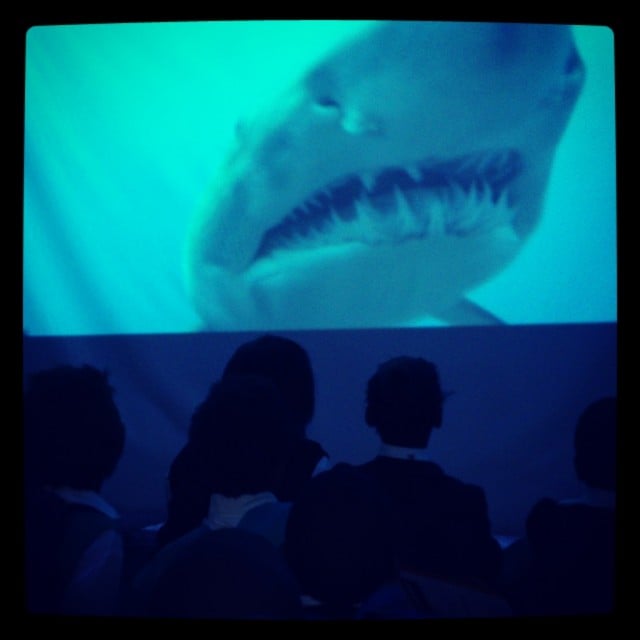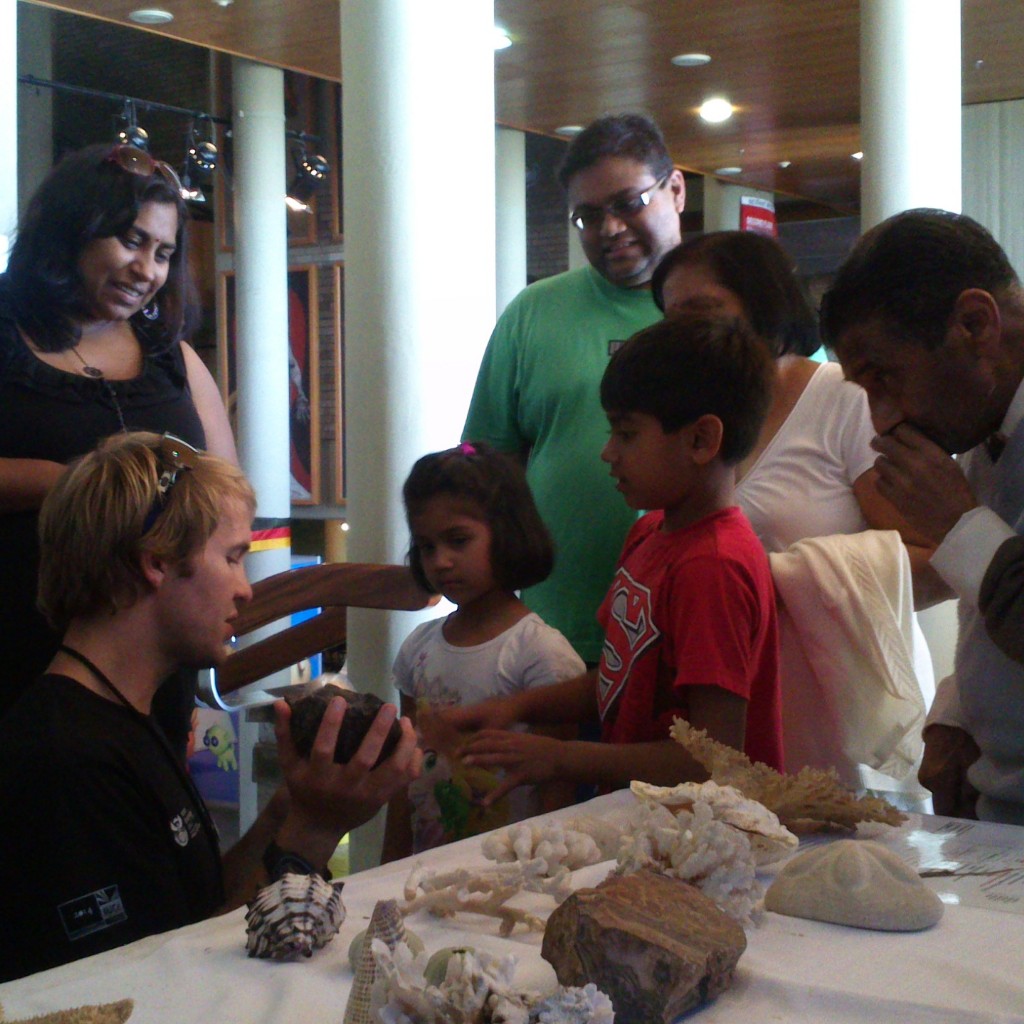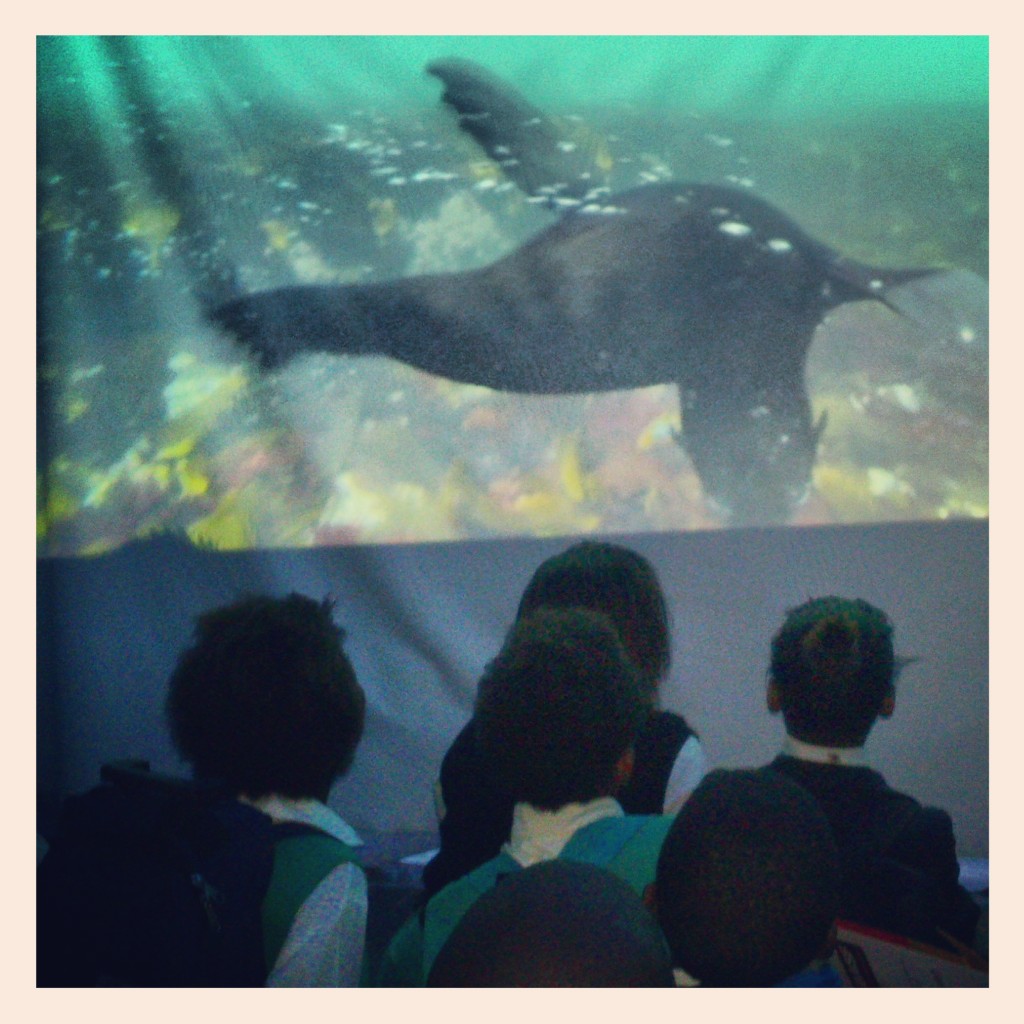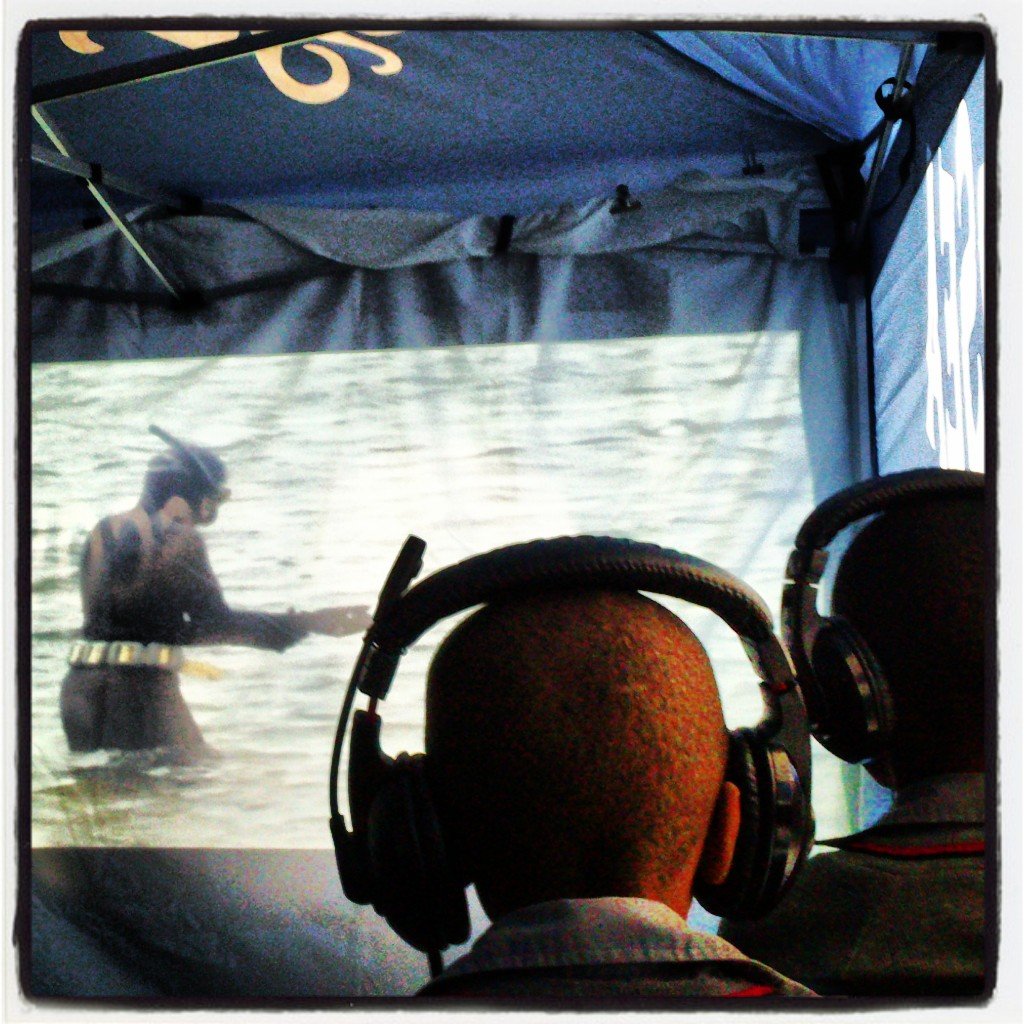Discovering our Seas
“So, what are you going to be when you grow up?”
Stepping carefully out from the darkened interior of our DiscoverSea Tent after watching his first video of South Africa’s incredible ocean life, his eyes wide and earnest, 4 year old Leroy looks up at us before replying: “A SCUBA diver!”
Yes! Mission accomplished.

Getting up close ‘n personal with a ragged tooth shark. For most children at SciFest Africa, this was their first glimpse of the life in the sea.
We at the University of Cape Town’s Marine Research Institute have just spent a full week showcasing our magnificent South African ocean heritage at SciFest Africa, hosted by the quaint settler town of Grahamstown in the Eastern Cape. Known as the home of Rhodes University (and the working domain of my fellow ocean-minded colleagues at SAEON and SAIAB), this town hosts the largest science festival for school learners in the southern hemisphere. You can check out the details here: http://www.scifest.org.za/
68 000 children made their way through the SciFest doors this year, and we at the Marine Research Institute made sure that those learners got a taste of what life as a marine biologist is like!
Pavs Pillay, Emlyn Balarin, Morgan Brand and myself put together a display of fascinating sea creatures and stories to captivate our young audience – and then we invited them into our self-devised “DiscoverSea Tent” where we brought the oceans to land-locked Grahamstown in the form of an immersive visual and audio ocean experience. The response was overwhelmingly positive, and we worked flat out to answer questions related to conservation, marine biology and how best to follow a career in this rewarding world.

UCT PhD student and ocean lover, Morgan Brand, introduces this family to the tale of an ancient ammonite fossil
It was possibly some of the most tiring work I’ve ever done with children, but undoubtedly one of the most rewarding experiences. We had nearly 10 000 young visitors to SciFest every day – ranging in age from four to 18 (… and that’s not counting the teachers and parents, who were equally entranced by our tales of whales and diving with sharks, of ancient ammonite fossils and of life as an ocean scientist…) Each day, my colleagues astounded me with their unflagging energy and passion, devising creative ways to explain a whale’s baleen (which, when many of the children don’t speak English as a first language, is no mean feat – let me tell you!) With our voices eventually rather hoarse, we enacted elaborate pantomimes and introduced the stories from our seas … a delicate nautilus shell, a familiar urchin, a strange starfish …
A big thanks to the Save our Seas Shark Education Centre, and in particular Paul Millar, who supported our initiative and provided us with great educational books and teacher manuals to give out to a very deserving next generation of marine scientists and conservationists. The Eastern Cape is very under-resourced, and teachers were thrilled to receive support in the form of information on sharks and their conservation.



